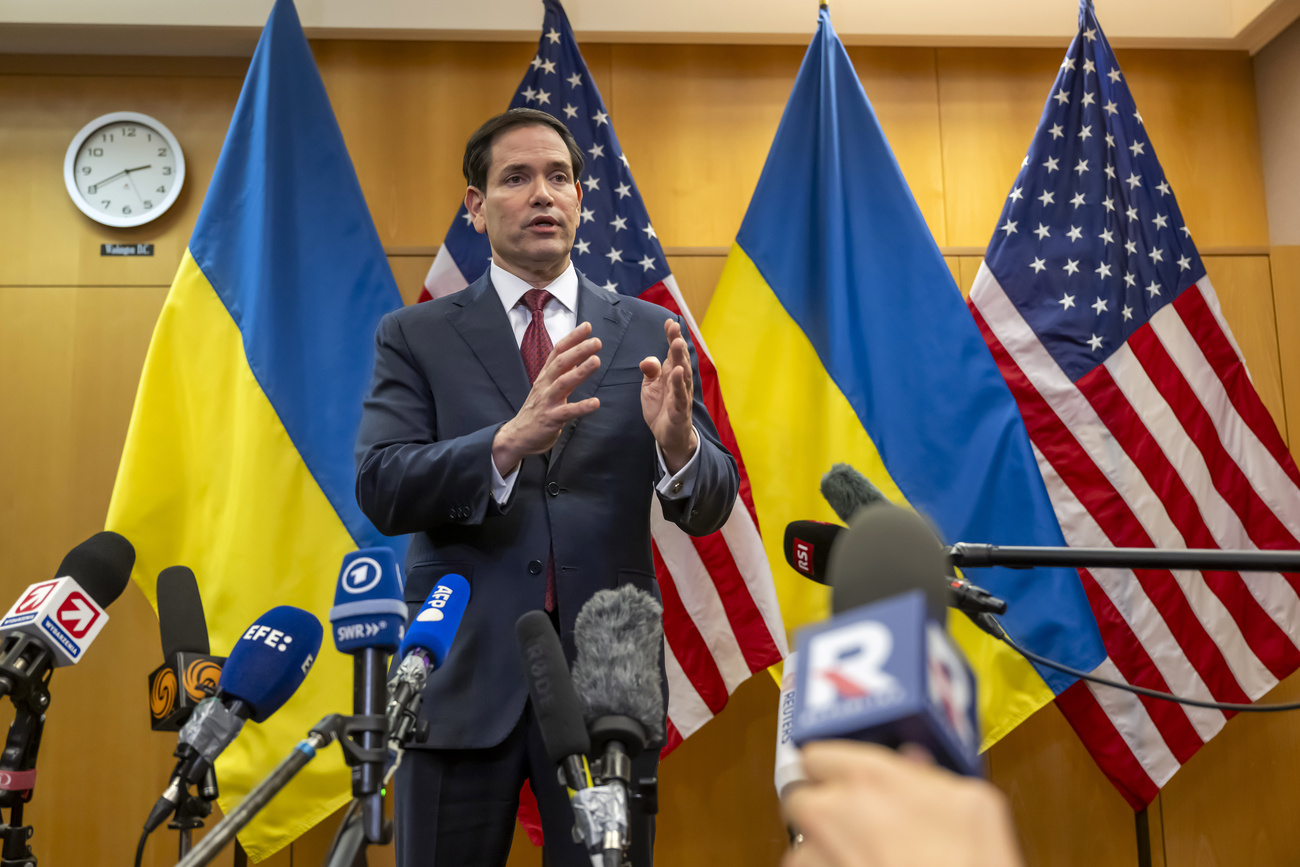
Learning in harmony leaves the cantons cold

Moves are afoot to harmonise education in Switzerland without undermining the authority of the cantons, which each have their own system.
Education is a key element of regional autonomy under Switzerland’s federalist system with 26 directors – one for each canton.
The House of Representatives last month accepted a constitutional amendment on education aimed at forcing the system to streamline at a national level without interfering too much with decentralisation.
Pending approval by the Senate – the other parliamentary chamber – the bill could be put to a nationwide vote in 2007.
Under the government-sponsored bill the federal authorities will be able to order cantons to comply if they don’t manage to agree on a far-reaching harmonisation from kindergarten to the end of the school cycle.
The amendment sets out a list of changes to be implemented nationwide – the same age for starting school, the same number of compulsory schooling years, mutual recognition of diplomas and harmonisation of the school levels between the cantons.
Mobility
The aim is to provide a “high quality homogenous education space, covering all the territory”, according to the authorities.
At the moment, moving from one canton to another remains problematic for pupils, who must cope with different curricula and age groupings.
The minimum age for starting primary school ranges from five to seven years old, depending on the canton, while the primary school cycle can last from four to six years.
More recently, the cantons have also chosen to go their own way in the teaching of other languages, provoking much debate over national cohesion.
In Zurich and parts of eastern Switzerland, for instance, schools are to start teaching English in the third year of school, followed by French two years later. In other cantons, one of the national languages takes precedence.
Federalism
The Swiss Conference of Cantonal Education Directors is setting up a consultation project to clarify the extent of the planned harmonisation and coordination at the beginning of next year.
“If we go any further, we will standardise and centralise the system, like the [centre-right] Radical Party called for last year,” said Olivier Maradan, of the Conference of Cantonal Education Directors.
“Education is one of the largest areas of authority belonging to the cantons,” added Nicolas Schmitt of the Fribourg-based Institute of Federalism. “The Conference of Education Directors is one of the biggest of all the inter-cantonal bodies, across all sectors.”
Over the past 30 years, the cantons have endeavoured, through the conference, to harmonise some of their practices. Closer cooperation in the area of professional studies is already in the pipeline.
Precious differences
Switzerland is a mishmash of little states (cantons), which over time have given up some of the powers to the federal government. The army and currency were among the earliest to go in the 19th century.
But health and education touch the citizens closer to home, Schmitt explains. “These areas of authority have remained governed at local level as much as possible.”
In Schmitt’s view decentralisation of education is necessary, given the country’s diversity.
“Switzerland has every reason to hold on to a decentralised education system. How else would you manage schools in several different languages and cultures?”
Decentralisation can be seen in action at the communal level. Local communities manage kindergarten and compulsory schooling, supported by school committees including children’s parents. These committees sometimes choose teachers and monitor the running of the school.
26 directors
The federal constitution grants the cantons authority over education. The cantonal directors are responsible for the school syllabuses.
There is no minister for education with authority over the sector at federal government level. But politicians are seriously considering bringing education-related tasks, currently divided between three ministries, under one roof.
Among the leading industrialised countries, Switzerland is one of the highest spenders per pupil on education. The main reasons are high teachers’ salaries and the costs of multilingualism.
“You would imagine that because of decentralisation, the cost of school administration would be higher,” said Michel Rohrbach of the Conference of Cantonal Education Directors commented. “The OECD [Organisation for Economic Cooperation and Development] figures show that it is not so.”
swissinfo, Pierre-François Besson
Switzerland spends SFr11,000 ($8,514) per pupil per year on education, SFr3,000 above the OECD average (2001).
From kindergarten to university, the country spends SFr25 billion per year on education (2002 18.6% of total expenditure).
The cantons and communes take on 87% of this expenditure.
Half of the total is spent on the years of compulsory schooling, which covers seven pupils out of ten.
Under the Swiss system, cantons have autonomy over the areas of authority that have not been delegated to the federal authorities. The Constitution specifies that the cantons are responsible for providing sufficient primary education for all.
The move to harmonise of the school system seems to have good support. A recent survey on the subject showed that 88% of people would like a school system unified at national level.

In compliance with the JTI standards
More: SWI swissinfo.ch certified by the Journalism Trust Initiative




























You can find an overview of ongoing debates with our journalists here . Please join us!
If you want to start a conversation about a topic raised in this article or want to report factual errors, email us at english@swissinfo.ch.